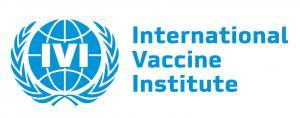
An international consortium led by the International Vaccine Institute (IVI) has received funding from the U.K.’s Fleming Fund Regional Grants to conduct the “Capturing data on antimicrobial resistance (AMR) patterns and trends in use in regions of Asia (CAPTURA)” project.
The CAPTURA consortium also includes the Public Health Surveillance Group (PHSG), the Brigham and Women’s Hospital, and the University of Oxford’s Big Data Institute (BDI).
According to the World Health Organization, AMR is one of the biggest threats to global public health. If current trends continue unabated, WHO estimates there will be 10 million deaths annually and a yearly cost of $100 trillion by 2050.
The 2018 World Health Organization Global Antimicrobial Resistance Surveillance System (GLASS) Report argued that putting resources into the containment of AMR, including surveillance, is one of the highest-yield investments a country can make to mitigate its impact.
“To combat the serious risk that AMR poses to global health there is still much more we need to learn about its geographical distribution and the scale of the problem, particularly in low- and middle-income countries,” said Lucy Andrews, head of the Fleming Fund. “This project will help us better understand the scope and scale of the problem through improving access to data on antimicrobial resistance and trends in use of antimicrobial medicines.”
Director General of IVI Jerome Kim also said, “IVI’s work with CAPTURA is based on our belief that stronger data will inform better policy and that vaccines have an important role to play combatting AMR.”
CAPTURA aims to increase the volume of data available to improve spatiotemporal mapping of AMR and antimicrobial use, assess the quality of data and provide meta-data to give regional and inter-regional context, undertake analysis of the data, and ensure findings are disseminated locally, regionally and globally.

